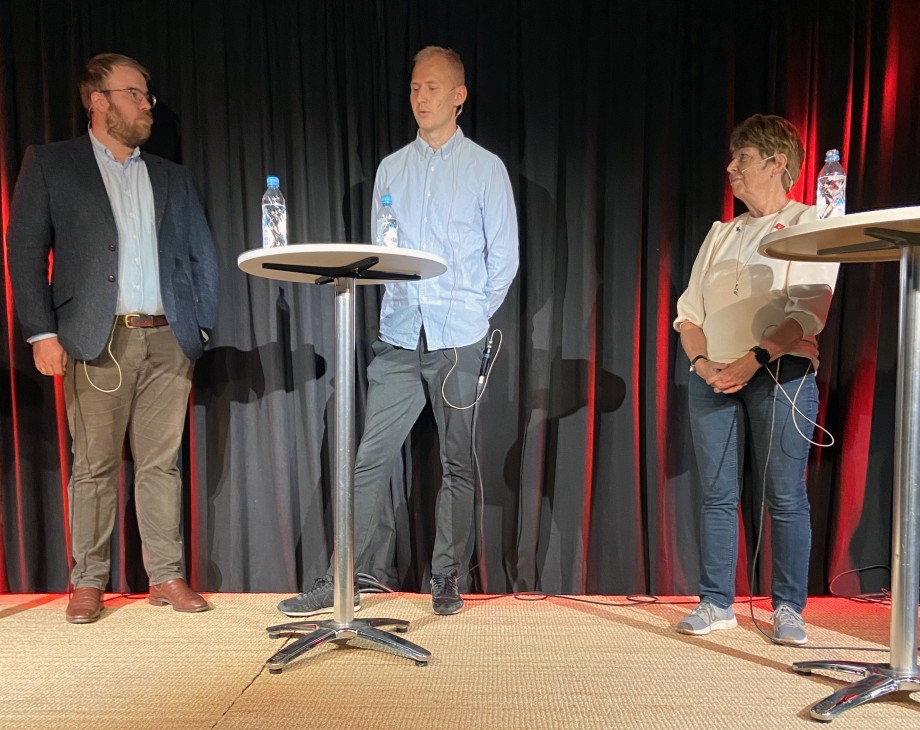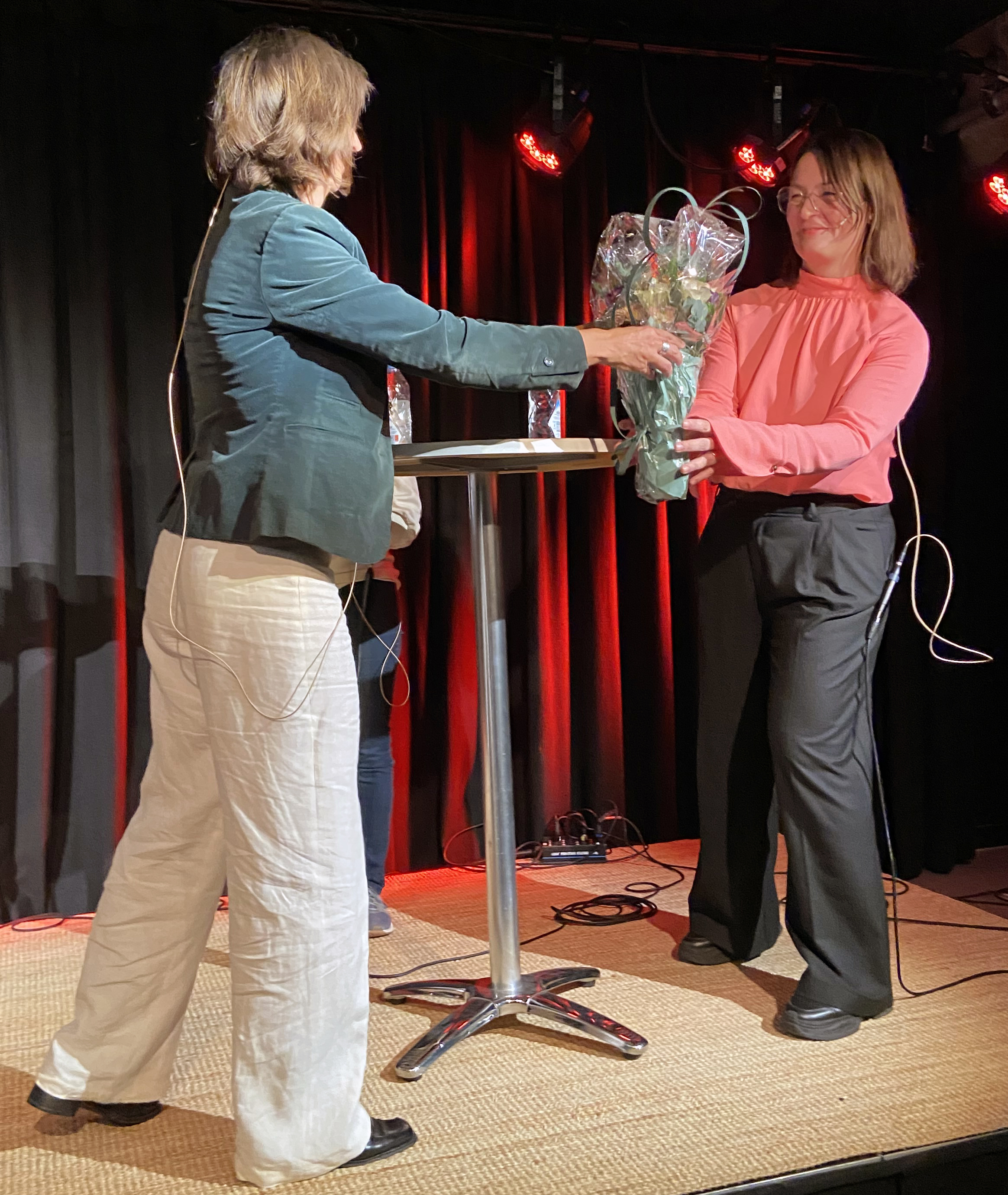The Caring Futures research project invited five regional participants to a panel discussion at Sølvberget Library and Culture House, to discuss challenges related to future health and welfare services, with the spotlight on technology, ethics and care.
Directly or indirectly, these are relevant challenges impacting all the participants on the panel. Guri Tysse is the head of the Norwegian Federation of Organisations of Disabled People (FFO). Kristine Kårstad Skjøthaug is Head of Department for E-health and Welfare Technology at Stavanger Municipality. Elsa Søyland heads the steering group of the Norwegian Smart Care Cluster and is the CEO of the SAFER Foundation. Bjørn Lorentzen is CEO of Tidewave R&D, a health tech company focusing on assistive aids for people with movement disabilities. Andres Neset is the County Medical Officer and Director for the Department of Health, Care and Social Services for the County Governor of Rogaland.
The panel discussion was led by Associate Professor Brita Gjerstad, who leads a work package in the Caring Futures project. Gjerstad kickstarted the discussions by asking each of the participants why this topic engaged their interest.
A Competent Panel of Experts

Tysse, who has extensive experience from the health sector says, “I represent those who receive assistance. People must be cared for with simple, universally accessible solutions. Roughly 600,000 Norwegians have low digital competence, which leads to real challenges with app-based solutions”.
Skjøthaug, whose key concern is sustainable healthcare services, emphasized that technology must be seen as a means to an end - also in the future. Søyland echoed this sentiment and highlighted the importance of robust collaboration between healthcare and industry.
Lorentzen's company, Tidewave R&D has developed an automatic turning mattress. He and his co-founders were masters’ students at UiS when they founded the company, which was formally launched two years ago. He highlighted the user-driven development of the mattress and iterated at Tidewave’s aim is to develop technology that will positively impact the users' quality of life.
Neset pointed out the importance of strategic investment in sustainable welfare societies. “We must develop current services in response to the ongoing demographic changes, particularly the decrease in the proportion of our working population.”
What Does Good Provision of Care Entail?
Gjerstad then challenged the participants to define the provision of good care.
“It requires that you can put yourself in another’s shoes. Involvement is necessary for feeling and displaying empathy” responded Søyland.
Neset responded that the answer lies in the fundamental values that guide society, but also that the values and needs of the individual must be taken as the starting point for the provision of good care. Both Lorentzen and Tysse brought up the importance of professional competence that is necessary for the person receiving the service to feel seen and heard. Skjøthaug again emphasized the importance of health technology.
“Tidewave is a good example of technology that requires healthcare professionals to work in a different and more efficient way. Their technology frees healthcare professionals to go to patients who need supervision”, she says.
Competence and technology
Gjerstad then asked the panel which skills they felt were necessary for the various patient groups.
Søyland believes in including the users, next of kin and service providers both while mapping needs and testing and implementing services. While Neset agrees with this, he was quick to point out considerable legal challenges in these processes. Tysse also called for a clearer and more extensive inclusion of next of kin in the development of services. Lorentzen responded that he believed there was an excessive focus on technology, which is often also poorly implemented. He called for more holistic thinking about service provision, where technology is only one of the components. Skjøthaug noted that it was still not absolutely clear which skills were needed in health and care services, but that this was exactly what her department was working on.

The Audience Weighs In
One of the audience members who shared her views after the panel discussion was a retired teacher.
“There is too little being said about society and community. The idea of an individual receiving services in their own home until they die sounds terrible. We must find more opportunities to be together, to build a sense of community. It is very challenging for elderly persons who receive home-based care to deal with different nurses from day to day.” Tysse expressed her complete agreement with this sentiment.
Lack of community was also the message of a psychiatrist in the room, who emphasizes poor mental health triggered by the pandemic as a result of this.
“Many patients benefit from technology, but it can never replace interpersonal contact. Especially not for the elderly. There is a real need for holistic thinking here.” says an audience member who is a psychiatrist. She went on to highlight how the lack of a sense of community had exacerbated poor mental health during the pandemic.
Gjerstad concluded by thanking everyone for their participation and for their willingness to ask questions and share their thoughts.
Text and photo: Eigil Kloster Osmundsen